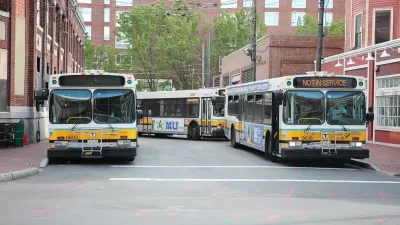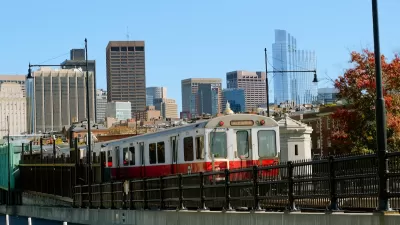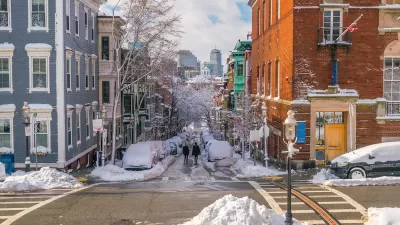Hana Schank reports on Boston's Citizens Connect app, and the innovative ways in which the city's Department of New Urban Mechanics is empowering citizens and government employees alike.
Schank looks at the pioneering work of the Department of New Urban Mechanics, co-chaired by Nigel Jacob and Chris Osgood, which has put Boston on the map as a top digital city due to an approach that "gets users involved throughout the process in a meaningful way, and [results in] apps that work."
One result of this process is Citizens Connect, which "is something like the digital equivalent of listening to a police scanner...Citizens report clogged storm drains, excessive jackhammer noise, illegal trash dumping, and faulty street lights, complete with pictures. Reported cases then go directly into the city's work order queue for resolution, and users are informed how quickly the case will be closed. When cases are resolved the date and time of the resolution is listed, providing users with the sense that the city is on the job."
For Schank, the focus on the user experience is what sets Boston apart from other cities attempting similar initiatives.
"Boston takes a look at what the users are doing, what their needs are, how those needs are currently met by government, and how technology can make all of that better. If only more cities approached digital that way, imagine what that could do for our nation's overall quality of life."
FULL STORY: Boston Does Digital: What We Can Learn From A City That Is Getting It Right

Manufactured Crisis: Losing the Nation’s Largest Source of Unsubsidized Affordable Housing
Manufactured housing communities have long been an affordable housing option for millions of people living in the U.S., but that affordability is disappearing rapidly. How did we get here?

Americans May Be Stuck — But Why?
Americans are moving a lot less than they once did, and that is a problem. While Yoni Applebaum, in his highly-publicized article Stuck, gets the reasons badly wrong, it's still important to ask: why are we moving so much less than before?

Using Old Oil and Gas Wells for Green Energy Storage
Penn State researchers have found that repurposing abandoned oil and gas wells for geothermal-assisted compressed-air energy storage can boost efficiency, reduce environmental risks, and support clean energy and job transitions.

Updating LA’s Tree Rules Could Bring More Shade to Underserved Neighborhoods
A new USC study finds that relaxing Los Angeles’ outdated tree planting guidelines could significantly expand urban tree canopy and reduce shade disparities in lower-income neighborhoods, though infrastructure investments are also needed.

California's Canal Solar Projects Aim to Conserve Resources and Expand Clean Energy
California’s Project Nexus has begun generating electricity from solar panels installed over irrigation canals, with researchers and state agencies exploring statewide expansion to conserve water and boost clean energy production.

HHS Staff Cuts Gut Energy Assistance Program
The full staff of a federal program that distributes heating and cooling assistance for low-income families was laid off, jeopardizing the program’s operations.
Urban Design for Planners 1: Software Tools
This six-course series explores essential urban design concepts using open source software and equips planners with the tools they need to participate fully in the urban design process.
Planning for Universal Design
Learn the tools for implementing Universal Design in planning regulations.
Heyer Gruel & Associates PA
City of Moreno Valley
Institute for Housing and Urban Development Studies (IHS)
City of Grandview
Harvard GSD Executive Education
Salt Lake City
NYU Wagner Graduate School of Public Service
City of Cambridge, Maryland





























